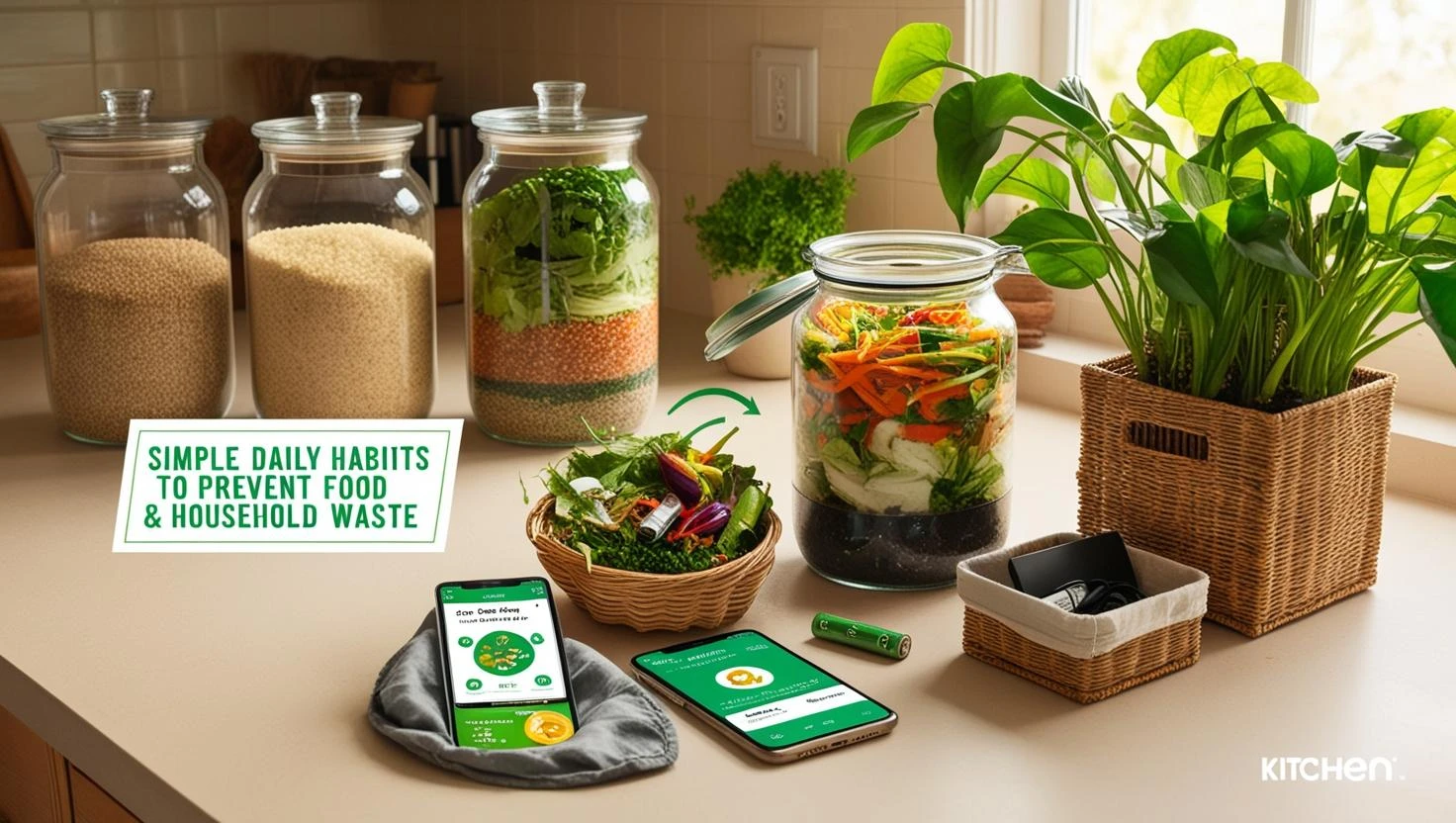Is reusing plastic water bottles safe?



Anusuya Tamilrajan
Enironmental Enthusiast April 29
In a world where resources are becoming scarce and the environment is in trouble, food waste prevention and household waste prevention is no longer optional — it's necessary. From last night's dinner to yesterday's gadgets, waste created at home helps fuel world environmental issues. Fortunately, there are successful and straightforward methods for turning that around. By embracing simple daily routines and employing the proper tools, we can all learn how to avoid food waste, how to avoid e-waste, and minimize overall household waste with little effort.

Smart Ways to Avoid Food Waste at Home
Food waste is among the largest contributors to landfills and methane emissions. But the best part? Most of it can be avoided. Here are some practical tips on how to avoid food waste:
One of the more popular solutions now is to prevent food waste through an app. Apps such as OLIO and Too Good To Go match users with excess food from neighbors or shops, preventing waste and saving money.
How to Prevent E-Waste and Household Waste
When it comes to determining how to avoid e-waste, the solution lies in moving from a throwaway mentality to a reuse-and-fix mentality. E-waste comprises broken phones, non-functional chargers, unused cables, and other electronics piling up in your drawers.
These are some means of avoiding waste, particularly electronics:
Easy Habits That Make a Big Difference
Final Thoughts
Learning how to avoid waste at home doesn't mean we need to change everything about our lifestyles. It begins with small changes in the way we shop, cook, eat, and throw away things. From avoiding wastage of food in the kitchen to minimizing e-waste in your drawer or closet, little helps.
Through technology and community initiatives—such as using an app to avoid food waste—habits are now simpler than ever to stick to. By implementing these everyday habits, you're not only saving waste; you're also helping to create a healthier planet for generations to come.
#WastePrevention #WaysToReduceWaste #Reducewaste #RefuseWaste #ReduceFoodWaste #AppsToReduceWaste
Related Conversations